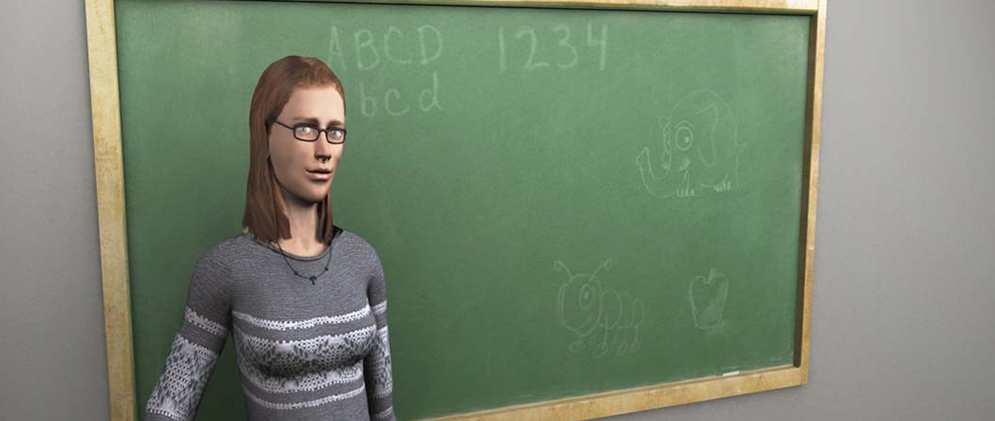Learning in the Digital World: The Impact of Social Belief on the Neurophysiology of Memory
From The Theme
ADVANCED HUMAN COMMUNICATION TECHNOLOGIES
WHAT IF?
What if we could examine how belief in the presence, nature and agency of a virtual teacher influences learning and memory?

WHAT WE SET OUT TO DO
We set out to explore how engagement with a virtual character modulates how information is learned. Specifically, this project was designed to elucidate, in both behavioral and neurobiological terms, how people learn and express knowledge in virtual environments, and to assess whether this learned knowledge can be flexibly retrieved to support novel inferences. We developed tests combining behavioral, physiological and functional neuro-imaging methods with learning and memory tasks, to assess whether belief about the nature of a virtual teacher (avatar or agent) impacts the acquisition and application of knowledge.
WHAT WE FOUND
We compared results between groups who believed that a virtual teacher was a computerized agent (agent) and those that believed the virtual teacher was controlled by a human (avatar). According to our data, believing that a virtual teacher is controlled by an human impacts (1) the physiological response, (2) the cortical and subcortical regions engaged, and (3) memory performance (learning that supports flexible expression of acquired knowledge).
LEARN MORE
Chen, J., Shohamy, D., Ross, V., Reeves, B., & Wagner, A. D. (2008). “The Impact of Social Belief on the Neurophysiology of Learning and Memory.” Presentation at Society for Neuroscience, November, 2008.
PEOPLE BEHIND THE PROJECT
 Anthony Wagner is a Professor of Psychology and Neuroscience at Stanford, where he directs the Stanford Memory Laboratory and co-directs the Stanford Center for Cognitive and Neurobiological Imaging. His research focuses on the psychology and neuroscience of learning, memory, and executive function in young and older adults. His lab uses a variety of imaging techniques, including functional MRI and electroencephalography, to understand how the brain builds and retrieves memories and to examine the processes that enable goal-directed behavior.
Anthony Wagner is a Professor of Psychology and Neuroscience at Stanford, where he directs the Stanford Memory Laboratory and co-directs the Stanford Center for Cognitive and Neurobiological Imaging. His research focuses on the psychology and neuroscience of learning, memory, and executive function in young and older adults. His lab uses a variety of imaging techniques, including functional MRI and electroencephalography, to understand how the brain builds and retrieves memories and to examine the processes that enable goal-directed behavior.
 Byron Reeves is The Paul C. Edwards Professor of Communication at Stanford University. He teaches courses in mass communication theory and research, with particular emphasis on psychological processing of interactive media. His research has been the basis for a number of new media products for companies such as Microsoft, IBM, and Hewlett-Packard, in the areas of voice interfaces, automated dialogue systems and conversational agents.
Byron Reeves is The Paul C. Edwards Professor of Communication at Stanford University. He teaches courses in mass communication theory and research, with particular emphasis on psychological processing of interactive media. His research has been the basis for a number of new media products for companies such as Microsoft, IBM, and Hewlett-Packard, in the areas of voice interfaces, automated dialogue systems and conversational agents.